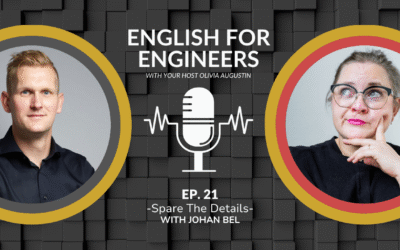Spare the Details—But Not the Clarity: How Technical English Improves Global Collaboration in Engineering
Not every project problem is a technical one. Sometimes it’s a missing detail. Other times?...
What is proper English anyway?
There’s the Academie Française, the official guardians of the French Language. There’s High German from the highlands...
What Your International Team Needs To Know To Communicate Better
For non-native English speakers, navigating an international business setting can be daunting. Their brains are...
What Is The Role Of Ethics In Engineering?
You have more impact on health and safety than you think you do as an engineer. We all have beliefs that inform our...
Why Engineers Struggle to Explain Themselves in English (and How to Fix It Without Starting From Scratch)
Let me guess, you’re a highly skilled engineer.You’ve got the experience, the qualifications, the problem-solving...
What Is Technical English? A Short Explanation for Engineers
What Is Technical English and Why Engineers Need It If you’re an engineer who works internationally, you’ve probably...
Let’s Talk Trash
I need to tell you a funny story.A couple of weeks ago, I met with a new client for the first time. Let's call him...
What is Business English?
Have you ever wondered what exactly Business English is? And why, therefore, your regular school English might just...
How to Write Work Emails Faster
Getting impatient with yourself because it takes you forever to write that one English e-mail? What's worse, you know...
Your Accent is Your Superpower
Do you have an accent? Talking to his parents, my husband's always slipping back into his mom and dad's lingo—and...
Untuck Your English
You probably landed on my blog because you’re a highly skilled engineer who’s sick of feeling stuck when it comes to...
5 Tips to Improve Your English Vocabulary
I know it seems hard to believe, but there's a couple of 'tricks' you can use to speed up your learning progress! And...
The English for Engineers Newsletter
Get my best tips, tricks + solutions straight into your inbox. A no-nonsense newsletter designed to help engineers. All you do? Pop your name in the box below to join the mailing list!
newsletter sign-up 01
*no spam and unsubscribe at any time











